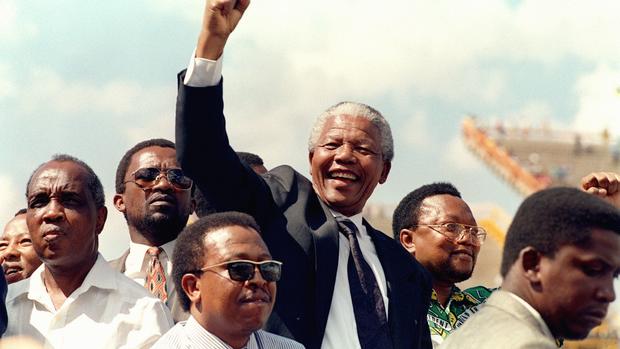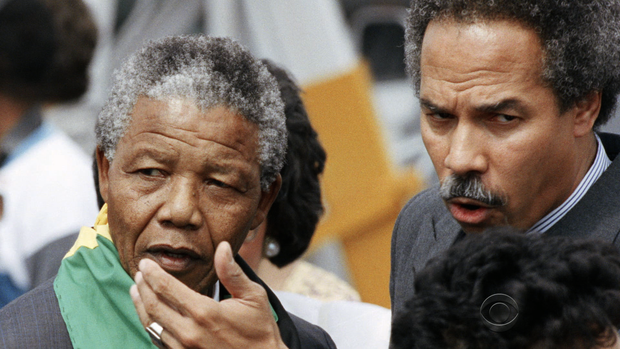American activist Randall Robinson remembers fight for Nelson Mandela's freedom
BOSTON -- In 1984, most Americans had never heard of Nelson Mandela. Political activist Randall Robinson was on a mission to change that.
“The strategy was to find ways to dramatize the relationship between the West and the South African Apartheid system,” Robinson told CBS News. “We were the legs on which it was standing.”
Robinson staged a sit-in with Congressman Walter Fauntroy and Civil Rights leader Mary Frances Berry at the South African Embassy in Washington, DC. They told the Ambassador that they would not leave until their demands were met.
All three were jailed. That one act of civil disobedience led to a year of daily protests at the embassy where celebrities, members of congress and citizens were also arrested.
Complete coverage of Nelson Mandela's life, legacy
Funeral plans for Nelson Mandela
Sadness, celebration: South Africa honors Mandela
“We put 5,000 people in jail at the embassy and that drove the headlines.”
The movement pressured politicians to act. In 1986, Congress overrode President Reagan's veto and imposed trade sanctions against South Africa. U.S. businesses were forced to divest - costing the regime over three-hundred and fifty million dollars that year alone.
Mandela's public persona was the same as his private one, Robinson said. He saw that first hand when a hotel housekeeper accidentally walked into a meeting.
“The moment that she walked into the room, he stood up because a gentleman stands when a lady comes into a room,” Robinson said.
“It was a private moment never to be seen or remarked publicly. It told me something about the man.”
A man whose respect for each individual taught the world so much about dignity and justice for all.
